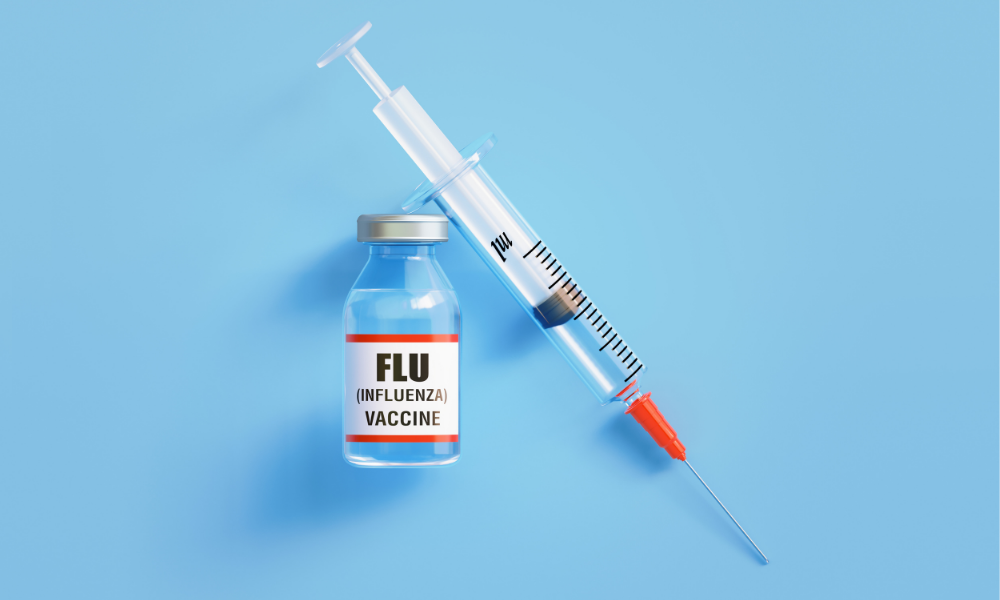Influenza symptoms include fever, chills, sore throat, muscle aches, and cough. People tend to use the term “flu” to describe any kind of respiratory or gastrointestinal illness, however, over 70% of respiratory infections are caused by pathogens other than influenza. The influenza vaccine will have no effect with these flu-like conditions. The vast majority of people naturally recover from influenza without any complications and may develop protection from future infection with the same strain or a related strain.

For more information: https://www.nvic.org/disease-vaccine/influenza
A newly released preprint study from the Cleveland Clinic has sparked international attention by reporting that the influenza vaccine for the 2024-2025 season was not only ineffective among a large population of working-age healthcare employees–it was associated with a higher risk of infection.
Posted on: Monday, April 7th 2025 at 11:30 am
Written By: GreenMedInfo Research Group
This article is copyrighted by GreenMedInfo LLC, 2025
Download and share this informative brochure on the facts about the flu vaccine.
https://childrenshealthdefense.org/wp-content/uploads/2019-CHD-Flu-Brochure.pdf
A 2017 CDC study shows up to a 7.7 times greater risk of spontaneous abortion after influenza vaccine.
[28] Miller’s Review of Critical Vaccine Studies. Neil Z. Miller. 2016. P. 64-84
[29] https://www.nvic.org/disease-vaccine/influenza/quick-facts
[30] Vaccine Adverse Events Reporting System – https://digital.ahrq.gov/sites/default/files/docs/publication/r18hs017045-lazarus-final-report-2011.pdf
Product: Flumist Quadrivalent (Astrazeneca)
Product Monograph: https://www.astrazeneca.ca/content/dam/az-ca/downloads/productinformation/flumist-qlaiv-product-monograph-en.pdf (33 pages)
Patient Information sheet: https://www.astrazeneca.ca/content/dam/az-ca/downloads/productinformation/flumist-qlaiv-consumer-information-leaflet-en.pdf
Manufacturer website: https://www.astrazeneca.ca/en/our-medicines.html
Product: Fluzone Quadrivalent (Sanofi)
Product Monograph: https://www.sanofi.com/assets/countries/canada/docs/products/vaccines/fluzone-qiv-en.pdf (31 pages)
Patient Information sheet: https://www.sanofi.com/assets/countries/canada/docs/products/vaccines/fluzone-qiv-pmi-en.pdf
Manufacturer website: https://www.sanofi.com/en